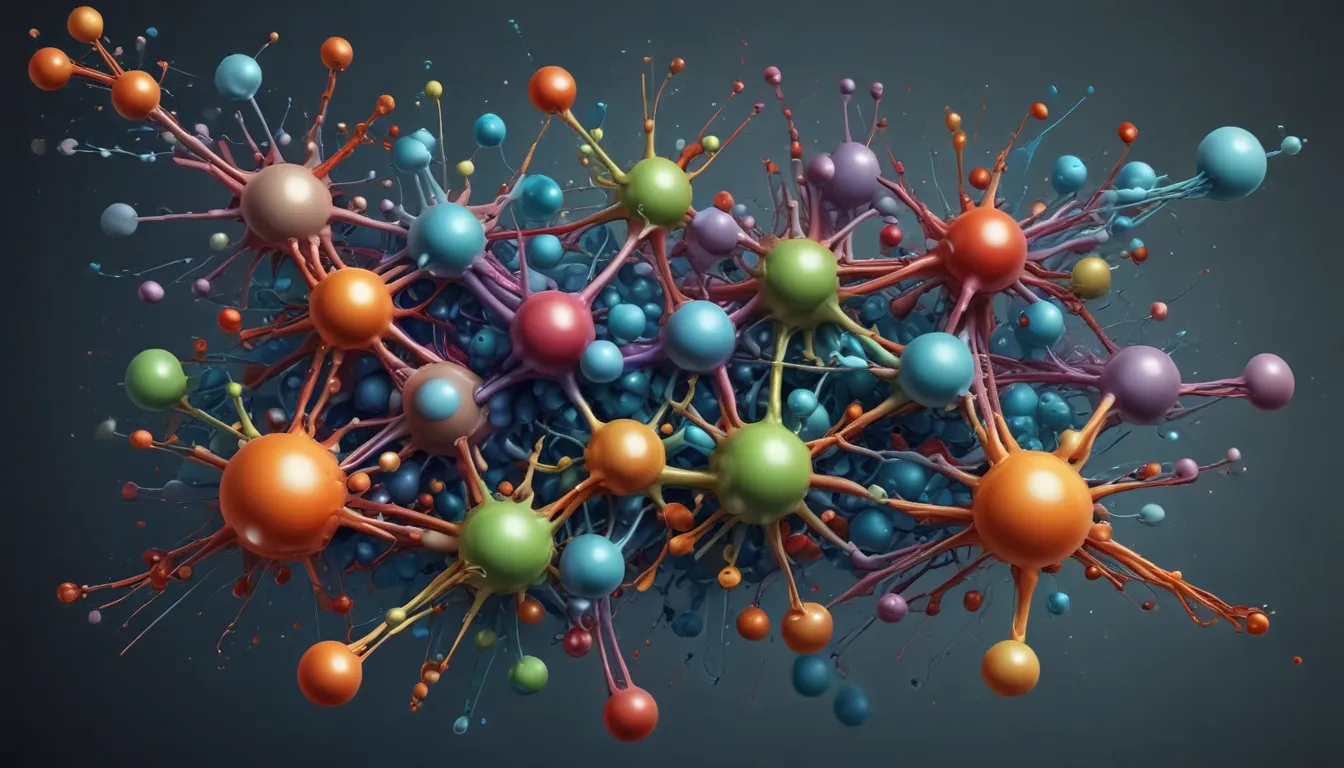A Note About Images: The images used in our articles are for illustration purposes only and may not exactly match the content. They are meant to engage readers, but the text should be relied upon for accurate information.
In the vast realm of biology, the intricate world of molecular markers serves as a crucial cornerstone in unraveling genetic mysteries and shedding light on various biological applications. These unique sequences of DNA or gene variations act as genetic signposts, guiding scientists in exploring genetic traits, evolutionary relationships, and disease diagnostics. Let’s delve into 18 fascinating facts about molecular markers that illuminate their significance in the realm of biology, from unlocking genetic codes to advancing personalized medicine.
Understanding the Significance of Molecular Markers
1. Genetic Detectives at Work
- Molecular markers are akin to genetic detectives that aid scientists in studying genes, diseases, and relationships among different organisms.
- These markers are pivotal in genetic research, offering a multitude of applications such as solving crimes and enhancing crop quality.
2. The Essence of Molecular Markers in Genetics
- Molecular markers play a vital role in genetic research by identifying and locating specific genes or DNA sequences.
- They allow scientists to delve into genetic variations and relationships among diverse organisms.
Exploring the Versatile Applications of Molecular Markers
3. DNA Fingerprinting: Unveiling Unique Profiles
- Molecular markers are instrumental in creating distinctive genetic profiles used in forensic investigations, paternity testing, and individual identification.
4. Classification of Molecular Markers
- Various types of molecular markers exist, including single nucleotide polymorphisms (SNPs), microsatellites, AFLPs, and RAPD, each serving unique purposes.
5. Disease Tracking and Prevention
- Molecular markers aid in tracking disease susceptibility by identifying markers associated with specific diseases, enabling targeted prevention and treatment strategies to be developed.
6. Plant Breeding Advancements
- Essential in plant breeding, molecular markers facilitate the identification and selection of plants with desirable traits, fostering the development of resilient crop varieties.
7. Insights from Population Genetics Studies
- Widely used in population genetics, molecular markers offer valuable insights into genetic diversity, gene flow, and population structures, aiding conservation efforts and evolutionary studies.
8. Drive for Personalized Medicine
- By identifying genetic markers linked to diseases or medication responses, researchers pave the way for personalized medicine, enhancing treatment outcomes for individuals.
9. Ensuring Food Authenticity and Quality
- Molecular markers play a role in food authenticity testing, ensuring accurate labeling and preventing fraud in the food industry.
10. Enhancing Animal Breeding Practices
- In animal breeding, molecular markers associated with desirable traits enable selective mating to improve disease resistance, productivity, and meat quality.
Unveiling the Impact of Molecular Markers Across Various Fields
11. Evolutionary Insights
- Molecular markers are crucial in understanding evolutionary relationships between species, tracking genetic changes, and reconstructing evolutionary histories.
12. Disease Diagnosis and Prognosis
- From disease diagnosis to prognosis, molecular markers provide doctors with valuable insights to predict disease progression and facilitate early detection and treatment.
13. Conservation and Wildlife Management
- In population studies, molecular markers offer critical information on population size, genetic diversity, and migration patterns, aiding conservation efforts and wildlife management.
14. Nurturing Crop Improvement
- By identifying markers related to desirable crop traits, scientists can develop superior crop varieties with enhanced yield, disease resistance, and nutritional content.
15. Legal and Personal Identity Resolution
- Molecular markers play a pivotal role in paternity testing, helping establish biological relationships between individuals and resolving legal disputes.
16. Advancements in Pharmacogenomics
- By analyzing genetic markers, doctors can tailor medication choices and dosages to individual patients, maximizing treatment efficacy and minimizing adverse reactions.
17. Combating Wildlife Crimes
- Molecular markers contribute to wildlife forensics by aiding in the investigation of illegal wildlife trade, poaching identification, and enforcement of conservation regulations.
18. Tracing Human Migration Patterns
- By analyzing genetic markers, scientists uncover human migration patterns, offering insights into our evolutionary history and ancient civilizations.
Embracing the Future with Molecular Markers
As the scientific landscape continues to evolve, molecular markers emerge as indispensable tools, revolutionizing genetic research, personalized medicine, and conservation efforts. Their broad applications pave the way for groundbreaking advancements in agriculture, evolutionary studies, and disease diagnostics, propelling us into a future brimming with possibilities.
FAQs: Navigating the World of Molecular Markers
- What are molecular markers?
-
Molecular markers are specific DNA sequences or variations that aid in identifying and tracking genetic variations in individuals or populations.
-
How are molecular markers used in genetics?
-
Molecular markers are extensively used in genetics to study genetic inheritance, disease-causing genes, and genetic diversity within populations.
-
Can molecular markers be utilized in personalized medicine?
-
Indeed, molecular markers play a crucial role in personalized medicine by customizing treatment plans based on individual genetic profiles, optimizing treatment outcomes.
-
Are molecular markers beneficial in conservation biology?
-
Absolutely, molecular markers are indispensable in conservation biology for assessing genetic diversity, unique population identification, and endangered species conservation strategies.
-
What techniques detect molecular markers?
- Techniques such as PCR (Polymerase Chain Reaction) and DNA sequencing are employed to detect molecular markers by amplifying and analyzing specific DNA regions.
Embarking on a Genetic Odyssey
In conclusion, molecular markers stand as pillars in the realms of genetics, genomics, and evolutionary studies, guiding us on a mesmerizing journey through the corridors of genetic intricacies. From decoding the language of DNA to unraveling the tapestry of gene expression, molecular markers empower us to unlock the secrets of life and propel scientific innovations to new heights.
In a world where science and technology intertwine, molecular markers illuminate the path to unprecedented discoveries, forging new avenues in personalized medicine, conservation biology, and agricultural advancements. Embrace the power of molecular markers as we embark on a transformative voyage towards a future shaped by the marvels of genetic innovation.
As you explore the captivating realm of genetics, remember that each fact and insight shared here stems from a community of dedicated contributors and editors committed to delivering authentic and engaging content. Trust in our commitment to excellence as you delve into the wonders of molecular markers, forging deeper connections with the captivating world of genetic exploration.





